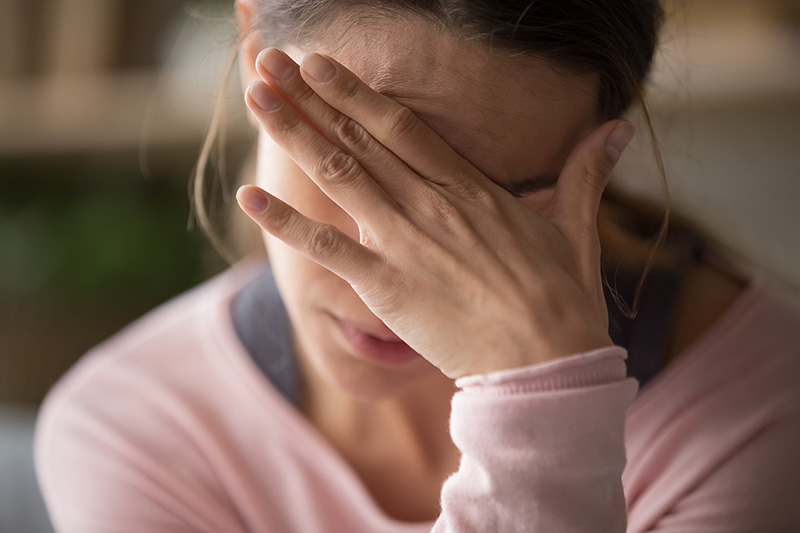Women are much more sensitive to the impact of drugs and withdrawal symptoms compared to men. Nearly 9 percent of women struggled with alcohol abuse in 2020. Getting the right type of treatment for substance abuse comes with significant challenges for women, not just in finding the initial care but in sustaining recovery. In this blog, we’ll discuss the challenges women face in addiction recovery and how to seek help.
Mental Health Issues
Some of the main challenges women face in addiction recovery centers are mental health issues. Women are more likely to have a co-occurring mental health disorder alongside addiction compared to men.
A study found that 57 percent of women who were shown to have PTSD, eating disorders, panic disorders, or depression also were shown to engage in substance abuse.
Social Expectations
Women face particular struggles with addiction because of family stress and social expectations. Women are more likely to develop an addiction because of child custody issues, divorce, or the death of a loved one. This, mixed with mental health or social struggles, can make it even harder for women to get help when they need it.
One of the many challenges women face in addiction recovery is the social expectations placed on women. Societal norms can still place women in a position where they are expected to manage:
- Work
- Home life
- Child rearing
- Marriage
With such expectations, women can struggle with feeling judged by others for not being able to handle all of these responsibilities or by asking for help.
For example:
Margaret struggled with low-grade depression for several years after having her two children. While she wanted to seek help, her sister-in-law, best friend, and mother often talked about how a woman should be able to manage without help, so Margaret turned to medication. But soon, Margaret developed an addiction, and when it came time to get professional help, Margaret knew she needed to step away from her daily obligations with inpatient care.
Margaret’s family and friends made faces, sneered, and spoke with a particular tone when Margaret suggested her desire. This judgment made it even more challenging, as Margaret heard whispers of things like “What will your kids do without you?” or “Who will ensure the housework is done?”
Trauma
Another of the challenges women face in addiction recovery can be a history of trauma. Women who have sustained trauma may hesitate to get help because they are worried about a mixed-gender treatment facility or receiving help from male therapists with whom they are less comfortable.
For example:
Linda has a history of domestic abuse. She developed an addiction during her marriage, but the first time she tried to get help, the therapist with whom she met was a large male who reminded her of her ex-husband. Linda was unable to get help because of her history of trauma and feeling unsafe with that particular center.
Linda represents one out of every three women who experience intimate partner violence at some point. Women who have experienced this kind of violence at a higher risk of substance use
Discrimination
Addiction recovery becomes even harder for women when there is discrimination. Discrimination can take place at work, at home, or somewhere else, and that type of discrimination can make it difficult for women to get the resources they need for treatment or to sustain long-term recovery.
Even when women reach out for help, they may be less likely to continue with individual therapy or medication for a co-occurring mental health disorder because of social expectations, discrimination, or other issues.
All of the same things that increase a woman’s chance of developing addiction make it even harder for women to sustain their recovery. When you consider the example of Linda above, without the right type of gender-based treatment program, Linda may turn away from much-needed resources because they are facilitated by a man. When you look at Margaret, she might be much less likely to continue with ongoing treatment if she feels pressure from other women in her family.
Getting Help with Casa Serena
Thankfully, women like Linda and Margaret can get help, and so can you. At Casa Serena, our women’s drug and alcohol rehab specializes in women’s only treatment programs with a range of flexible schedules run for women by women. Given the increased risk of addiction and relapse in women who struggle with social pressure from family issues, discrimination, and mental health disorders, finding the right type of care is essential. With our women’s-only addiction treatment programs, you can get the help you need in your addiction recovery with sustained aftercare.
Overall, there are several challenges that women face in addiction recovery, most of which make it difficult for women to feel comfortable reaching out for help or continuing in a treatment program. With the right resources, such as a women’s only program, getting help and sustaining recovery is much more manageable.
Contact our team to learn more about our women’s residential treatment programs.



